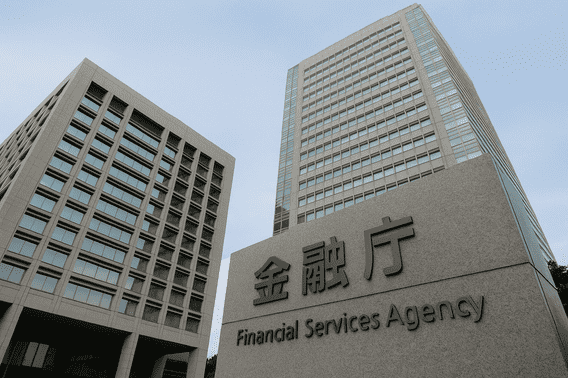Japan’s Financial Services Agency (FSA) has presented a proposal to move crypto regulation from the Payment Services Act (PSA) to the stricter Financial Instruments and Exchange Act (FIEA).
The FSA report, released on Tuesday, explained that crypto assets face issues similar to those covered under the FIEA. These include unclear documents, inaccurate information, and risks from unregistered companies.
The agency noted it may be “appropriate to address them (crypto assets) using the mechanisms and enforcement of the Financial Instruments and Exchange Act.”
The report is an internal document from the FSA secretariat. It was submitted to the Financial System Council, which advises Japan’s Financial Services minister.
The government will decide whether to create new crypto rules based on the proposal.
Issues Highlighted in Crypto Regulation
The FSA identified several concerns in the Japanese crypto market. Problems include unclear white papers, inaccurate disclosures, unregistered operations, scams, and security risks at exchanges.
The report also pointed to low risk tolerance among crypto investors. Many participants in Japan hold small balances and cannot absorb heavy losses.
The agency explained that stronger rules under securities law could give investors better protection.
By moving oversight to the FIEA, regulators would be able to impose disclosure requirements on issuers of crypto securities. The FIEA also allows regulators to enforce penalties such as emergency injunctions against unregistered businesses.
Growing Role of Crypto in Japan
The report underlined the growth of crypto in Japan. The number of accounts opened at domestic exchanges has passed 12 million. Deposits at these platforms now total more than 5 trillion yen ($33.7 billion).
That means nearly one crypto account exists for every ten people in Japan. However, trading remains small in scale. More than 80% of crypto accounts in Japan hold less than $675.
The FSA added that 7.3% of investors in Japan hold crypto assets, more than those involved in FX trading or corporate bonds.
Around 70% of holders are middle-income earners, and 86% invest expecting long-term price increases.
Finance Minister’s Comments on Crypto
Japan’s Finance Minister Katsunobu Kato spoke on crypto in late August. He said, “While crypto assets carry the risk of high volatility, by establishing a proper investment environment, they can become an option for diversified investment.”
His statement showed official recognition of the role of crypto assets in Japan’s investment portfolios, while the FSA looks for ways to tighten regulation.
Stricter Rules Under the FIEA
Currently, the FIEA treats crypto as financial instruments when used in derivatives. The new proposal would extend the law to cover public offerings, secondary distributions, and brokerage activities involving cryptocurrencies.
The FSA stated that applying the FIEA would help remove information gaps between issuers and investors.
Issuers would need to provide accurate disclosures, and trading platforms would face stricter oversight.
The act also provides enforcement tools. Regulators could issue orders against unfair trading practices and stop unregistered crypto businesses from operating.
Disclosure:This article does not contain investment advice or recommendations. Every investment and trading move involves risk, and readers should conduct their own research when making a decision.
Kriptoworld.com accepts no liability for any errors in the articles or for any financial loss resulting from incorrect information.

Tatevik Avetisyan is an editor at Kriptoworld who covers emerging crypto trends, blockchain innovation, and altcoin developments. She is passionate about breaking down complex stories for a global audience and making digital finance more accessible.
📅 Published: September 4, 2025 • 🕓 Last updated: September 4, 2025


